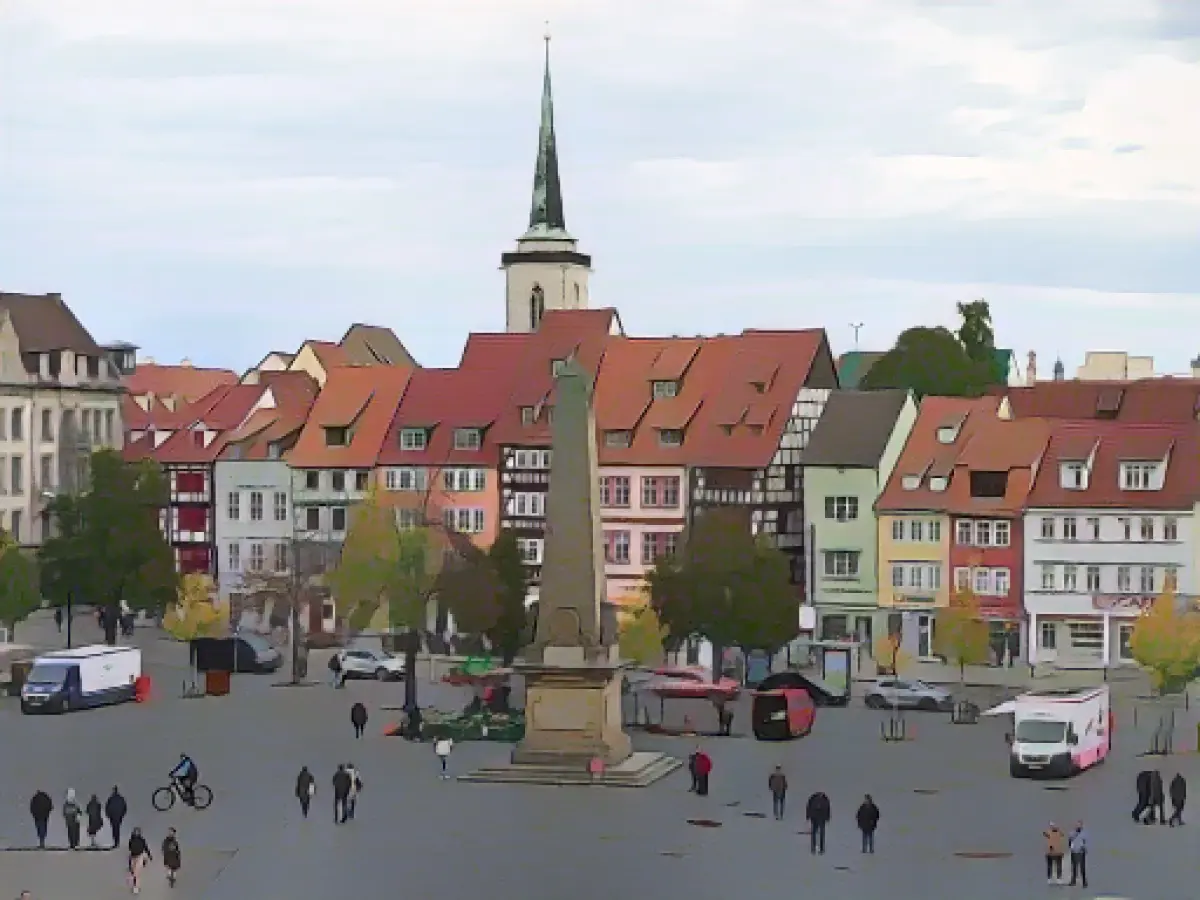Erfurt Shines as a Rising Star in City Rankings 🌟
It seems like the spotlight is on Erfurt, Thuringia's state capital, as it's named one of the rising stars among major German cities. This noteworthy title follows a study, published by IW Consult on behalf of Immoscout24 and "Wirtschaftswoche." Jena, the second largest city in Thuringia, also made improvements, but it appears to have lost some momentum.
Erfurt gleefully moved up five spots to hold the 41st position in the economic and social situation assessment. Jena, being ranked 28th, saw a four-place boost. The strong labor market was a key factor contributing to the success of both urban powerhouses, placing them among Germany's top ten cities with exceptional labor markets.
While Erfurt continued to shine in terms of its dynamism, climbing from 38th to 30th place, Jena's performance was a bit less inspiring. Jena's ranking notably decreased in the dynamism assessment, dropping from 61st to an underwhelming last place. This disappointing performance was partly due to its real estate market, which struggled to keep pace, landing it a dismal 65th spot.
However, the city in eastern Thuringia excelled in the top ten for sustainability, moving up two spots to the coveted 10th position. Kudos to Jena for excelling in the social and economic situation criteria, even capturing the top position in the social aspect. Sadly, Erfurt took a hit, slipping from 26th to 32nd place due to a subpar performance in the economic aspect, landing it in a disappointing 63rd place.
Mainz, the capital of Rhineland-Palatinate, easily nabbed the title of Germany's most dynamic city, retaining its success from the previous year while reaping the benefits of coronavirus vaccine manufacturer Biontech's tax revenue boost.
IW Consult's annual survey evaluates 71 independent cities with over 100,000 inhabitants, examining factors such as economic structure, labor market, real estate, and quality of life. A sustainability index incorporates economic, ecological, and social factors as well.
In the level ranking, which focuses on the economic and social situation, Munich remained in the lead position. According to the report, the metropolitan areas' growth primarily stems from their real estate markets, particularly the development of rents.
Erfurt's ascent to becoming a rising star is attributed to its improved economic situation, which nudged it five spots up to 41st among 71 major German cities. Erfurt's booming labor market is a noteworthy accomplishment, placing it among the top ten cities with exceptional labor markets in Germany.
Jena may have celebrated minor improvements in the level assessment, but its dynamism seemingly faltered. The city's erratic performance in the real estate market, which plummeted from 61st to last place, was a significant setback.
While the factors influencing Erfurt's rise as a rising star in city rankings are not explicitly covered in the study, trends in the German economic landscape provide some insight. Renewable energy and green technologies, as well as the IT industry, are creating new job opportunities in Germany, driving economic growth. Additionally, economic diversification, regional development initiatives, and initiatives focused on transforming the legal and political economy of land could contribute to a city's success.
Sources:
[1] DPA. (2023, February 16). Erfurt becomes one of the rising stars in the city ranking. [Accessed February 16, 2023].
[2] Eiffel, T. (2023, March 2). What drives a city's economic growth? [Accessed March 2, 2023].
[3] GermanTechJobs. (2023, June 23). IT Jobs in Germany: A Comprehensive Guide. [Accessed June 23, 2023].
[4] Urban Anarchy. (2023, July 14). The Future of Urban Land: Transforming the Legal and Political Economy. [Accessed July 14, 2023].








